22 Fantastic Family Board Games for Your Homeschool in 2025
This post shares 22 of our favorite family board games for homeschool, explains exactly what your children are learning each time they play them, and encourages homeschoolers to make games a regular part of their homeschool routine!
Since it is now the middle of winter in Wisconsin, the outside air freezes our nostrils, and the sun sets before we’ve even sat down for dinner, we have been spending an increasing number of evenings playing board games or card games as a family. I won’t say it’s always a relaxing activity (depending on how competitive certain family members are feeling), but it is great fun – and I even count it as an important part of our homeschool day.
What, you may be wondering, do games have to do with homeschool? Everything!
Kids love games. They may not love every game they try, but as a universal truism, they love to play games – with siblings, with friends or family, or even with the dog! And what is more, every single game a child plays is teaching them something.
Please note that the purpose of playing games in our homeschool is not just to “make learning fun.” I often squirm at that phrase because firstly, it assumes that “fun” is the highest goal, and secondly, it implies that learning is not fun unless we somehow make it so. However, whether or not it ends up being “fun,” I do always strive to keep our learning engaging and interesting.
Everyone learns and retains information better when they are interested or engaged, and there are many ways to do that! Narration is fabulous tool for engagement and we use it daily; high-quality, living books (as Charlotte Mason recommends) bring their own fascination and interest.
Another tool that is used and loved by many homeschoolers is simply playing games. When you stop and think about it, children are learning, practicing, and refining a host of useful skills when they are playing a board game. Furthermore, they are enjoying it and they are motivated to master these skills (so that they can master the game!).
- Want to help your three-year old practice identifying colors? Play a game!
- Want to work on spelling with your eight-year-old? Play a game!
- Does your eleven-year-old need some geography review? Play a game!
I was convinced of this truth a few years back when our then-6-year-old suddenly became an absolute PRO at counting, adding, and subtracting money – all because he was learning to play Monopoly with his two older brothers, and he wanted to win! I was astounded at the speed and ease with which he gained competency in this complicated skill, all because he wanted to. This would never have happened with a workbook!
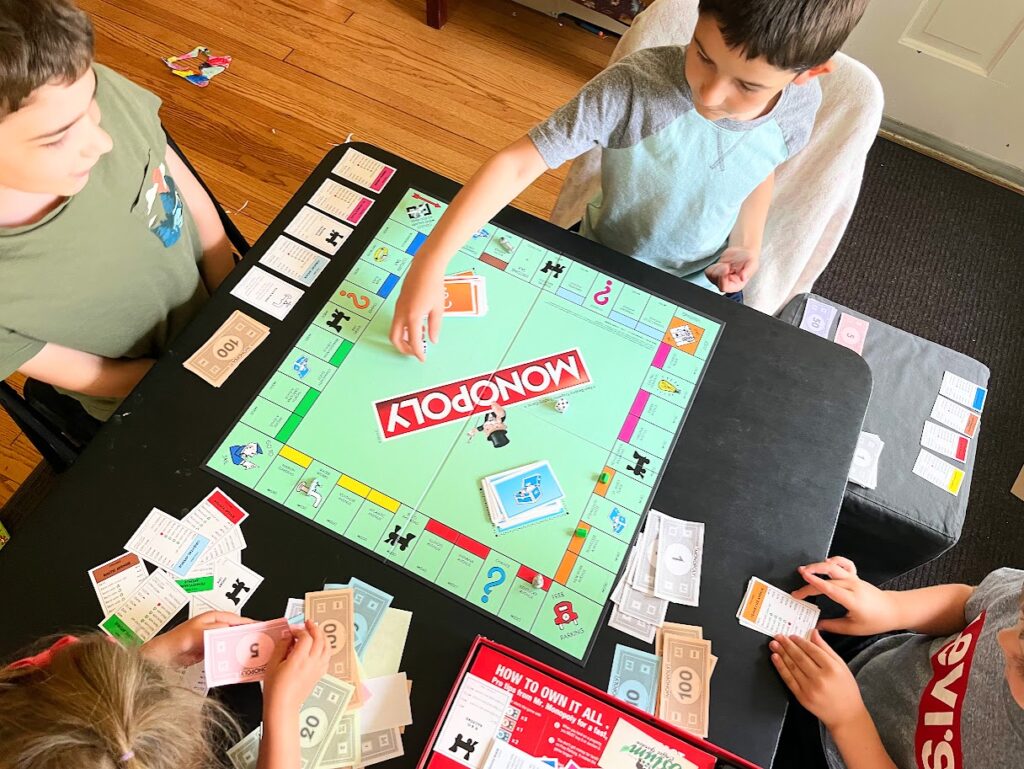
Do Video Games/Computer Games Count?
I want to be careful here, because I don’t ever want to come across as saying that all video games are evil or that children should never play computer games. This is simply too broad a statement to be true. Our children do spend time playing computer games, and they love it!
However, I have chosen not to include video games or computer games in this list, because I think they are different from board games in two key ways. They certainly can be fun, and they can bring the family together if you are doing it as a group, but they are both more addicting and more stimulating than board or card games.
As much as our children love playing Uno, they’ve never gotten “addicted” to it in the sense of playing it endlessly for hours on end. As competitive and noisy as Twister can get, it’s never sent our children into an emotional over-stimulated meltdown in the way that video games can do (especially the newer ones that move at a super-fast, adrenaline-inducing pace). It’s possible that I am extra-conscious of the over-stimulation that video games can cause because we have one child on the autism spectrum and another one with strong tendencies towards anxiety, but I tend to think that extended exposure to these levels of stress, adrenaline, or sensory stimulation are not healthy for any child.
I’ve written multiple times about how we carefully curate our screen time for kids, and these two reasons – the addictive and stimulating qualities of screen-based games – is why the game focus in our house has been on board and card games instead.
About This List
This is not just a random grab list of any and all games on Amazon – this is a carefully curated, thoughtful list just for you readers. I have only included games that we have actually played and truly enjoyed enough to play again, and again, and again; furthermore, I have broken them up into two categories (simpler games for non-readers and more difficult games for readers).
Finally, I am sharing just a few of the skills that your children are practicing while playing these games, to encourage you in their educational value and also to spark ideas – you’ll probably think of other games that your family loves, and begin to realize how many skills your children are using while playing them! Time spent playing games together is not a waste, and I hope that this will encourage you (and me) to say YES to games even more this year.
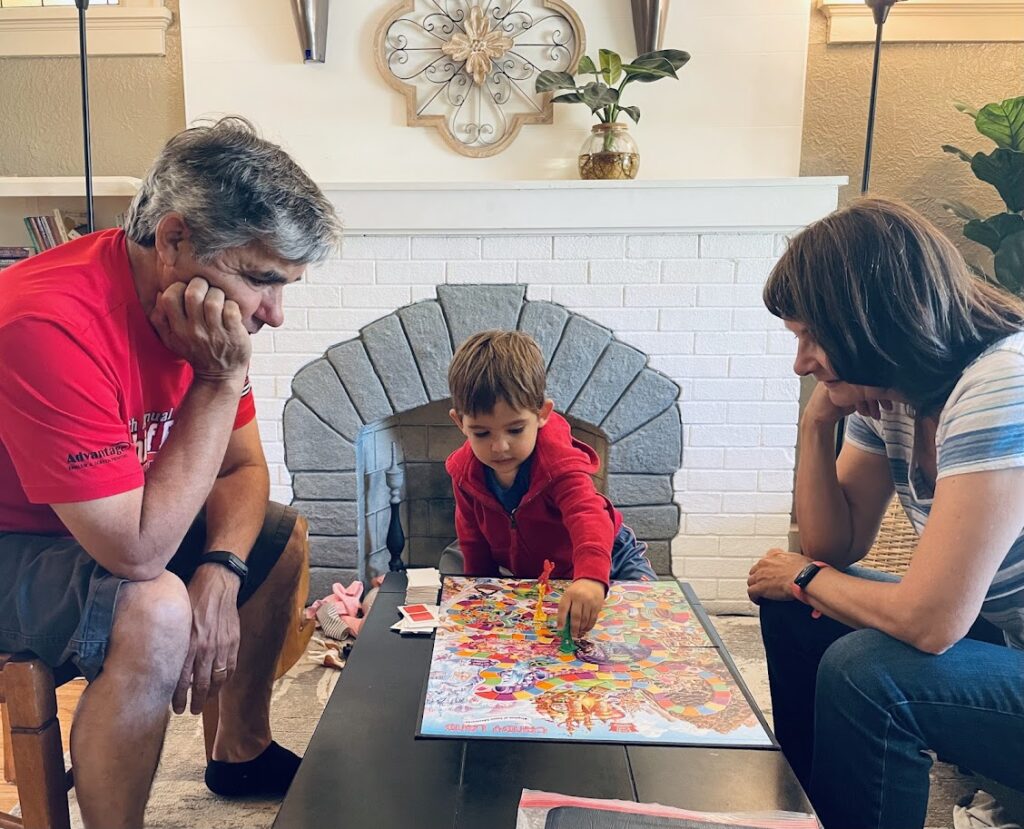
Favorite Family Games for Homeschool
For Readers
- Scrabble: vocabulary and spelling
- Monopoly: count, add, and subtract money
- Qwirkle: strategy, logic, patterns
- Blokus: strategy, logic
- Set: pattern recognition, logic, visual-spatial skills
- Rummikub: math, logic, strategy
- Bananagrams: spelling, vocabulary
- Boggle: spelling, vocabulary
- Ticket to Ride: geography
- Trekking the World: geography
- Prime Climb: math, counting, multiplication
- Clue: logic, strategy
- Cribbage: math skills, strategy
- Hedbanz: logic, the process of elimination
For Non-Readers
- Twister: practice right vs. left (with both hands and feet!)
- Candyland: finding and identifying colors
- Chutes and Ladders: simple counting
- Guess Who: logic, the process of elimination, simple strategy
- Connect Four: logic, simple strategy
- Uno: colors, simple number matching, counting
- Classic Memory Game: memory, attention, logic
- Colors and Shapes Bingo: colors, shapes, matching skills
Conclusion
I hope this post has encouraged you to make games a regular part of your homeschool. Your kids will thank you, and what is more, they will learn so much. Beyond the “academic” skills I listed above there are also many interpersonal skills involved, such as Taking Turns, Following Rules, and Losing Graciously. You will probably think of more! These are difficult (but necessary) concepts to master, and our children need to practice them.
Sometimes we have a twisted view of education that assumes that true learning isn’t happening unless it is difficult and painful, but I believe the opposite to be true. The best, most effective learning is characterized by joyful engagement, and playing games together is just one more way to weave this sort of learning into our homeschool.

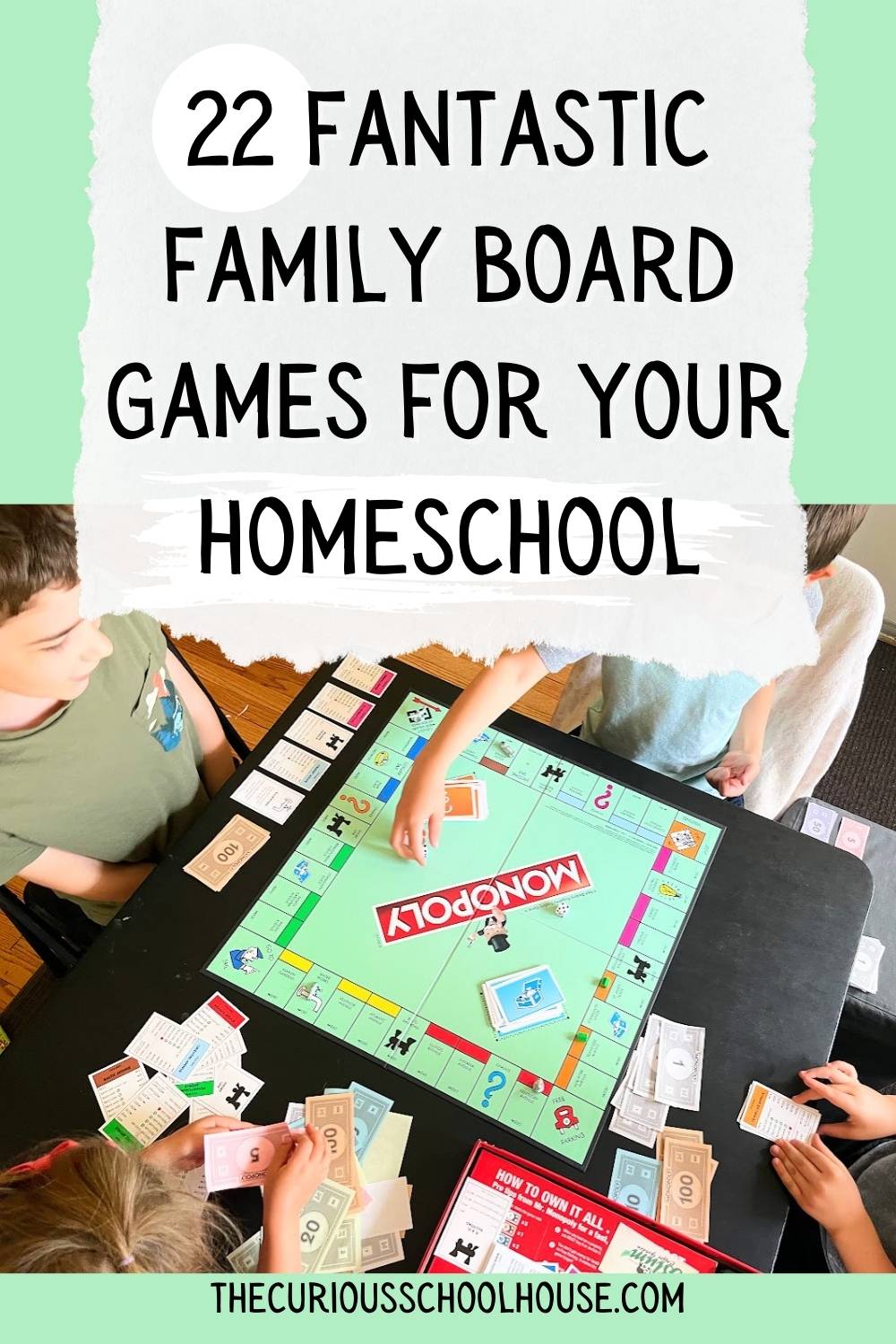
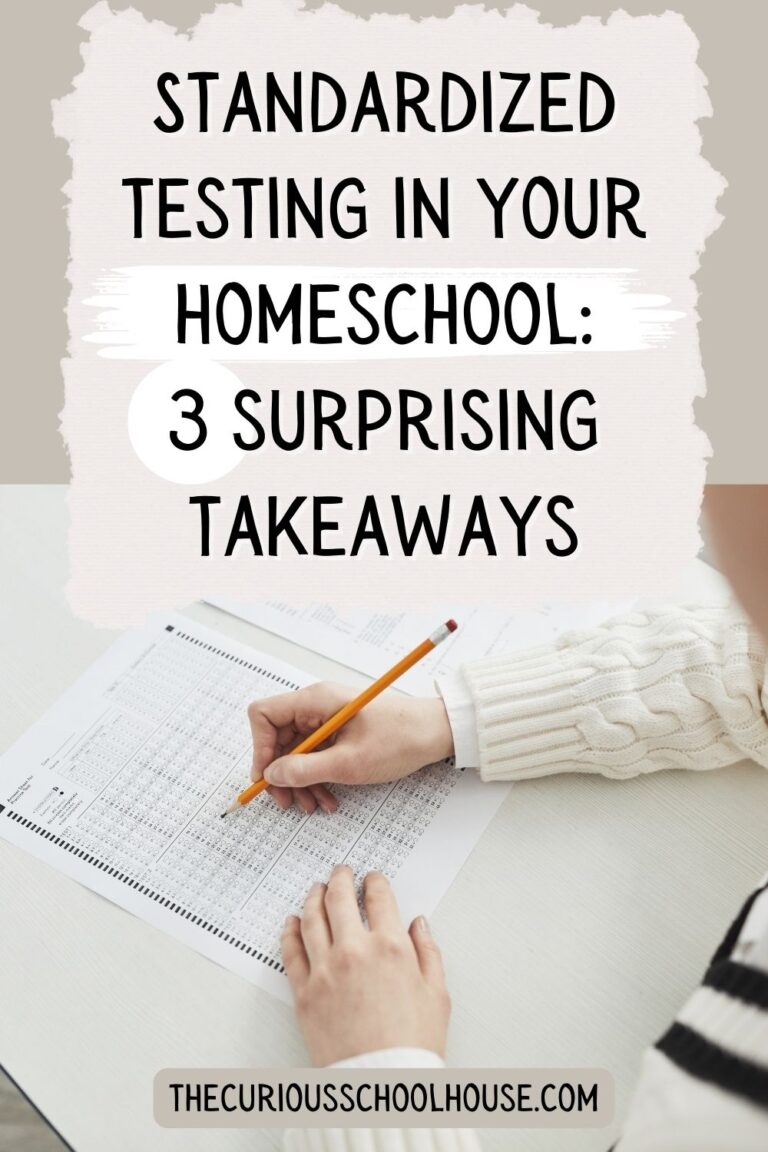
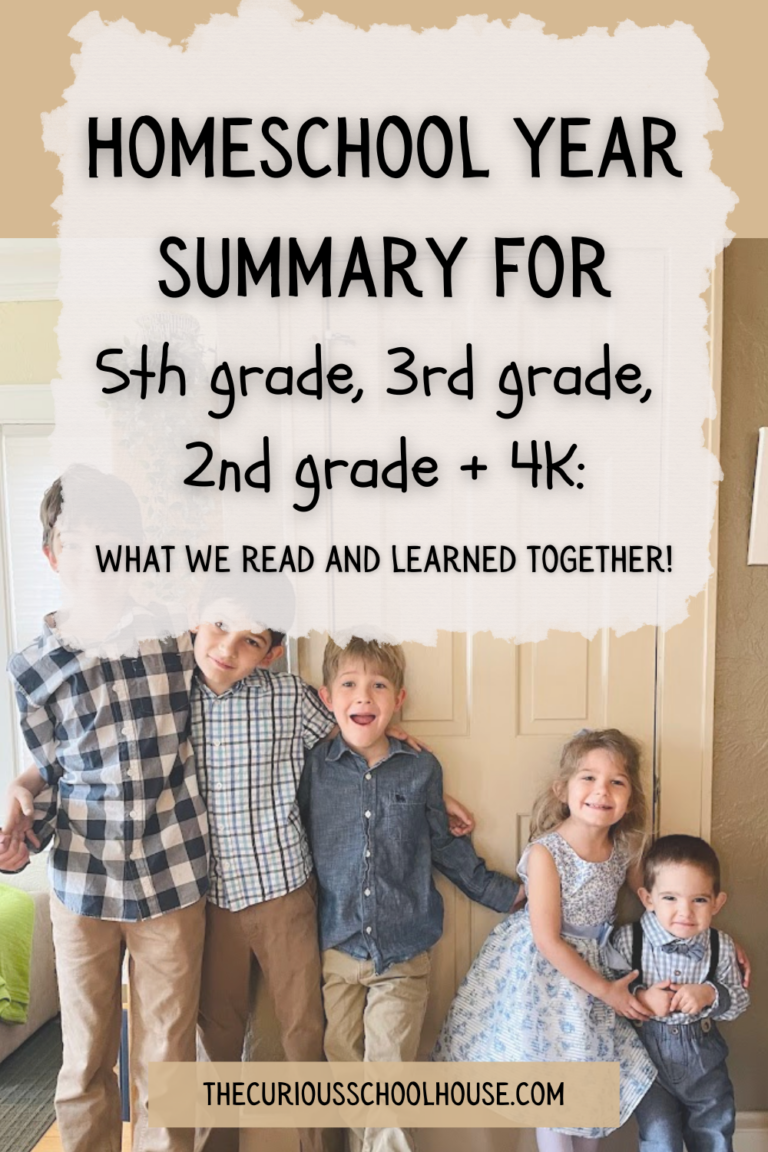

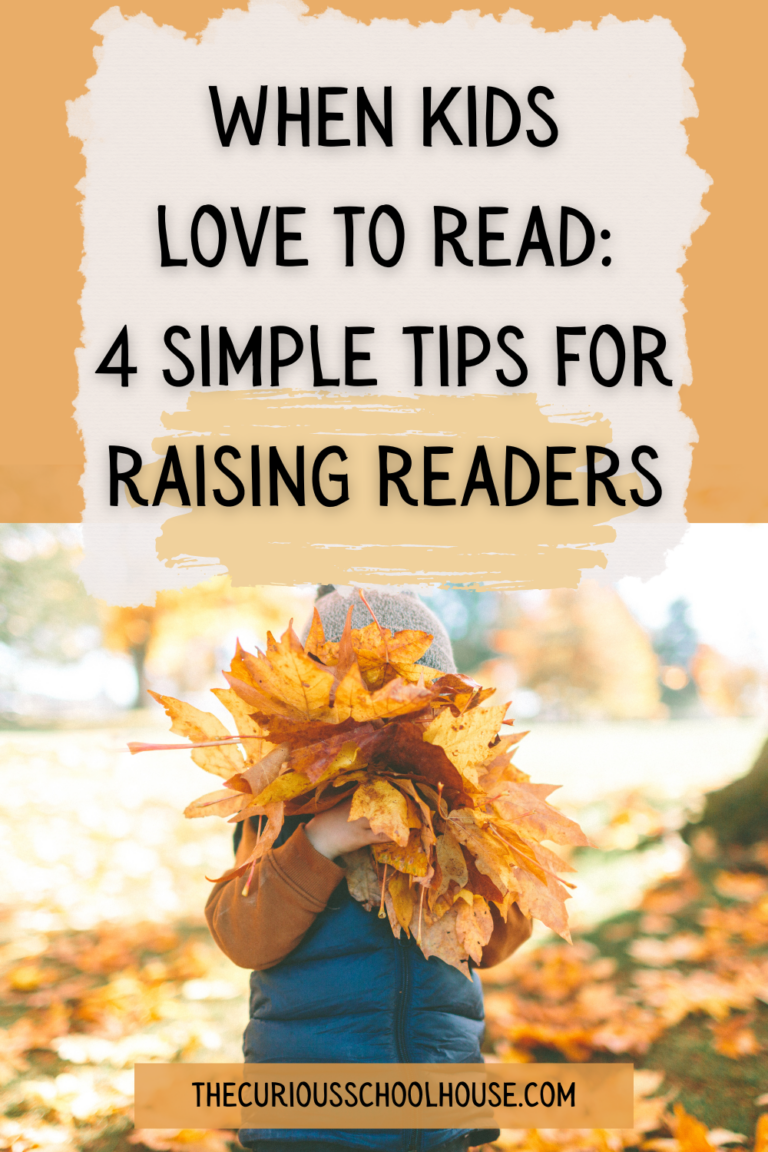


Ooh I needed more ideas, thank you!
Love this list!! We have been loving the game Outfoxed. It is a collaborative game, so we can help our preschooler. It’s so much fun! My personal favorite is Boggle. And I am starting to get my older boys into it. Thanks for sharing! Pinning for later! 🙂
Ooh we haven’t tried that one yet – will have to check it out!
What a great list! Saving this to add to our camping adventures! Never too old for fun board games!😁
So true! 🙂
Great list. We’ll be adding a few of these to our game closet soon!
So fun! My babies are all grown so homeschooling is over for us but I will pass these ideas along! My nieces are homeschooling. 😊
Love these ideas! Thanks for sharing!
Good ideas! We always love to switch things up with a board game in our homeschool.